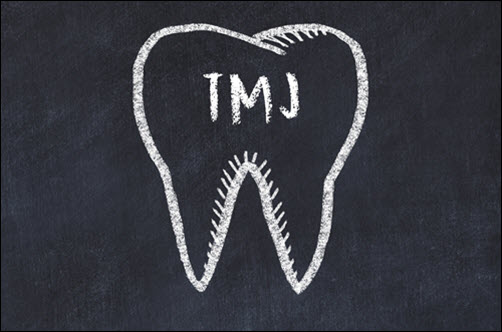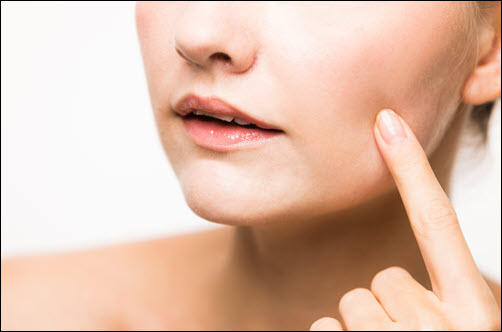Temporomandibular joints, known by many as TMJ, are the joints that connect the lower jaw to the upper jaw. When someone has pain in the jaw and its joints, muscles, cartilage disks, and ligaments, it is referred to as TMJ or TMD (Temporomandibular joint dysfunction). The pain caused by TMJ can make it difficult to speak and eat. According to the National Institute of Dental and Craniofacial Research, TMJ affects as much as 12% (around 10 million) of the U.S. population, with females being twice as likely to have it. People who have TMD often display tenderness at the joint, facial pain, and difficulty in moving the joints.
 Symptoms of TMD
Symptoms of TMD
- Pain felt in the face, neck, or shoulders
- Stiffness in the muscles of the jaw
- Limited movement of the jaw
- Clicking or popping sound in the TMJ
- Dental issues such as teeth grinding (bruxism)
- Tinnitus (ringing in the ear)
- Vertigo
- Toothache
- Earache
- Headaches/Migraines
- Shift in the jaw, so that the upper and lower jaw do not align correctly
- Difficulty opening and closing the mouth
TMD varies in intensity from person to person, but these are some common symptoms. In addition, symptopms can be on just one side of the jaw or both.
Causes of TMJ/TMD
There multiple potential causes for TMD. You may develop it as a result of genetics, or it may be caused by a variety of other factors, such as:
- A broken or dislocated jaw
- Teeth grinding
- Arthritis in the jaw
- Stress
- Malocclusion (when the top and bottom jaws are not aligned)
Actions that Cause Flare-Ups
- Stress
- Physical activity- Exercise is great, but actions such as weightlifting and jogging often cause one to grit their teeth and cause tense muscles. Consider wearing a sports guard to minimize the stress caused when doing these activities.
- Poor posture- This adds pressure to your neck, jaw, and shoulder
- Taking large bites of food or eating crunchy or chewy food
- Dehydration – If you are not drinking enough water, the joints and muscles do not get the lubrication they need to move smoothly. This will cause pain and inflammation.
- Chewing gum excessively or chewing ice, especially cubed ice adds strain and stress to the jaw
- Chewing on pens, pencils, or other items
- Sleeping on your stomach
- Hormonal changes – A sudden increase or decrease in hormone levels can cause joint inflammation.
Treatments for TMD
There are a variety of approaches to treating TMD. Some of them are up to you, while others are treatments your dentists can do. To minimize TMJ pain, avoid the causative actions above. Wear a sports or mouth guard. Avoid eating pain-causing foods. Sit up straight. Drink plenty of water. All of these can help.
Other approaches you can try are using ice or moist heat to relieve soreness and inflammation, eating a soft(er) diet, taking anti-inflammatory meds, or massage.
If you are doing all of these things but still dealing with TMJ pain, contact your dentist. Your dentist has several additional options available. Some of these may include:
- Botulinum Toxin Type A (Botox)
- Corticosteroid injections
- Muscle relaxant medicines or antidepressants
- Surgery, though this is a rare approach
Dealing with TMJ is a process of determining what approach(es) best work for your scenario. If are experiencing any of the TMJ symptoms, you don’t have to suffer. Talk to the dental team at Boiling Springs Family Dental. We can determine a course of action to help you.

